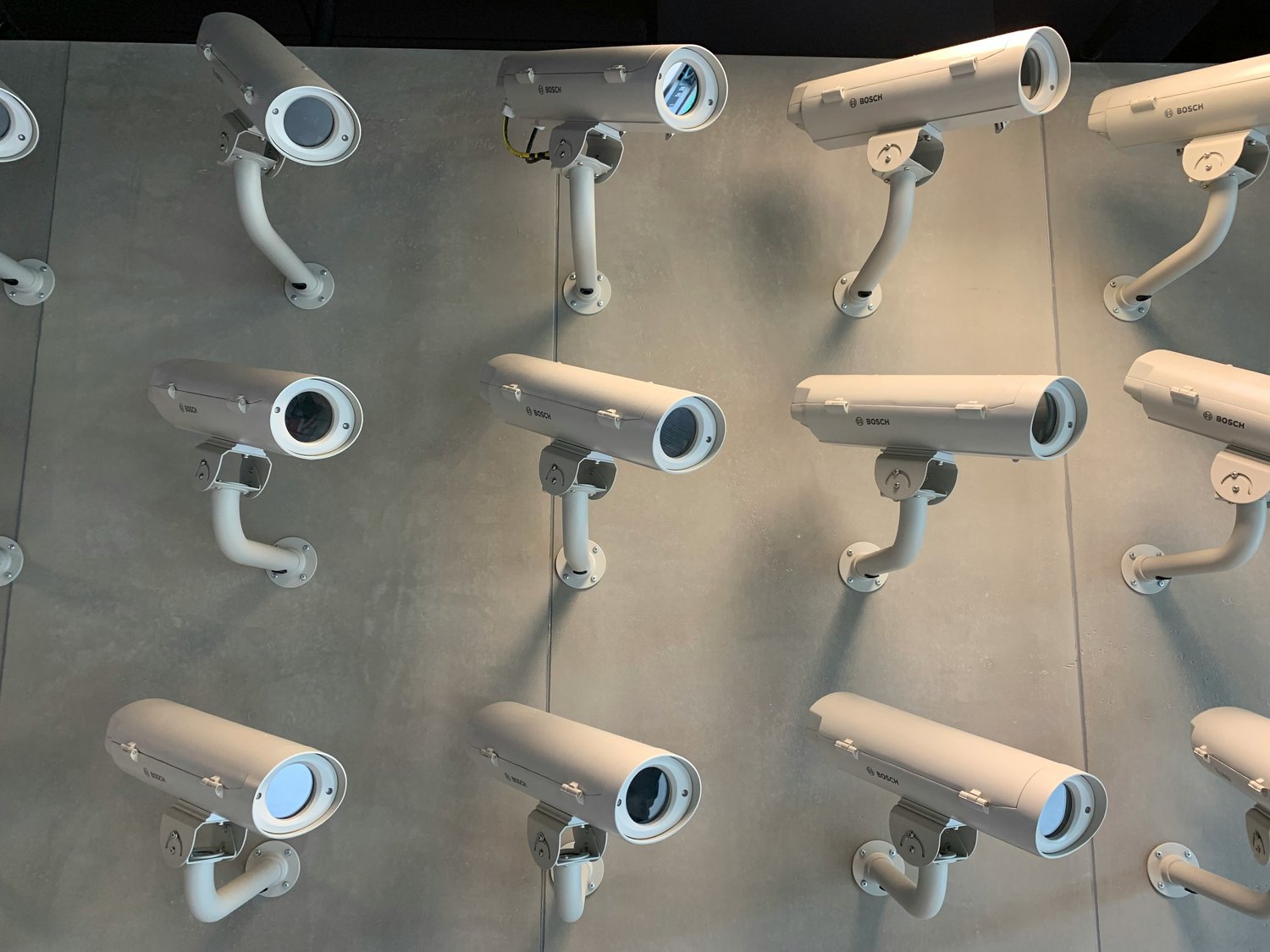Image: https://unsplash.com/photos/white-bullet-security-camera-lot-fRVPzBYcd5A
Installing a CCTV (Closed-Circuit Television) system can significantly enhance the security of your home or business. It allows you to monitor and record activities, providing peace of mind and helping prevent crime. But before diving into the installation process, it’s essential to understand several key factors to ensure that you get the best setup for your needs. In this article, we will answer the most frequently asked questions (FAQ) to guide you through everything you need to know before installing a CCTV system.
What is a CCTV System?
A CCTV system refers to a network of cameras and monitors used to transmit video footage to specific locations. These systems are primarily used for surveillance, security, and monitoring purposes. CCTV systems can be found in homes, businesses, and public spaces like shopping centers, parking lots, and streets.
Types of CCTV Systems
There are various types of CCTV systems available, each with its features and capabilities. The most common ones include:
Wired CCTV Systems: These systems use cables to connect cameras to monitors or recording devices. They provide stable video feeds and are ideal for large properties.
Wireless CCTV Systems: These systems transmit footage wirelessly, offering more flexibility in camera placement. Wireless systems are easy to install but may suffer from signal interference in some environments.
IP CCTV Systems: Internet Protocol (IP) cameras use your network to transmit footage, allowing you to access your camera feeds from any device with an internet connection.
Analog CCTV Systems: These older systems use coaxial cables to transmit video feeds to a digital video recorder (DVR), offering a lower cost option with basic features.
Why Should I Install a CCTV System?
CCTV systems offer numerous benefits, from increasing property security to acting as a deterrent for criminal activities. Some of the primary reasons people install CCTV systems include:
Enhanced Security: CCTV cameras can help deter theft, vandalism, and other criminal activities. They also provide a way to monitor activities on your property 24/7.
Remote Monitoring: Many modern CCTV systems allow you to access footage remotely through mobile apps or web browsers, giving you peace of mind while you’re away.
Evidence Collection: In the event of a crime, the recorded footage can serve as valuable evidence for investigations and legal proceedings.
Insurance Benefits: Some insurance providers offer discounts for properties with CCTV systems installed, as they reduce the likelihood of claims.
What Should I Consider Before Installing a CCTV System?
Before installing a CCTV system, there are several important factors to consider to ensure it meets your specific security needs.
Camera Placement
Proper camera placement is crucial for effective surveillance. Consider the following when determining where to position your cameras:
Entrances and Exits: Place cameras at doors, gates, or driveways to monitor who enters and leaves the property.
Vulnerable Areas: Focus on areas that are prone to break-ins or vandalism, such as backyards, parking lots, and storage rooms.
Lighting Conditions: Ensure that cameras are positioned in well-lit areas, as low light can affect the quality of the footage. You may need additional lighting or cameras with infrared capabilities for nighttime surveillance.
Number of Cameras
The number of cameras you need will depend on the size and layout of your property. Larger properties or those with more entry points may require multiple cameras to cover all angles.
Storage and Recording
A CCTV system needs a reliable storage solution to store the footage it captures. Some options include:
Digital Video Recorders (DVR): DVRs store footage captured by analog cameras.
Network Video Recorders (NVR): NVRs are used for IP CCTV systems and store footage from digital cameras.
Cloud Storage: Some CCTV systems offer cloud-based storage, which allows you to store footage remotely, reducing the risk of losing data due to theft or damage to local storage devices.
Power Supply
Ensure that your CCTV system has a stable power supply. Wired systems require a constant power connection, while wireless systems often rely on batteries or rechargeable power packs.
How Do I Choose the Right CCTV System for My Needs?
Choosing the right CCTV system depends on factors such as budget, property size, and desired features. Here are some tips to help you make an informed decision:
Determine Your Budget
CCTV systems vary in price based on their features, quality, and installation requirements. Decide on a budget that aligns with your security needs and explore options within that range.
Choose Between Wired and Wireless
Wired systems are more stable and provide higher-quality footage, but they may require professional installation and can be more costly. Wireless systems are easier to install but may suffer from signal interference or limited range.
Resolution and Picture Quality
Higher-resolution cameras offer clearer, more detailed footage, which can be crucial in identifying faces or license plates. Consider at least 1080p resolution for optimal image quality.
Additional Features
Some CCTV systems come with advanced features such as motion detection, night vision, remote access, and two-way audio. Determine which features are most important for your security needs.
Can I Install a CCTV System Myself?
While many CCTV systems are designed for DIY installation, some setups may require professional assistance, especially for large properties or more complex systems. Installing a CCTV system involves several technical steps, including camera mounting, wiring, configuring network settings, and ensuring the system works as intended. If you’re not comfortable with the technical aspects, it’s advisable to hire a professional installer.
DIY Installation
If you choose to install the system yourself, ensure you follow the manufacturer’s instructions carefully. There are many online tutorials and guides to help with setup. You’ll also need basic tools, such as drills and screwdrivers, for mounting cameras.
Professional Installation
Professional installation can save you time and effort and ensure that your CCTV system is set up correctly. Technicians can assess your property, recommend the best camera placement, and ensure that the system is functioning properly.
How Long Does CCTV Footage Get Stored?
The amount of time your CCTV footage is stored depends on the storage capacity of your system and the settings you’ve chosen. Typically, footage is stored for 7 to 30 days, depending on factors like:
Storage Capacity: Larger hard drives or cloud storage plans can hold more footage.
Recording Settings: Continuous recording takes up more storage space than motion-triggered recording.
Retention Policies: Some systems allow you to set how long footage is stored before it’s overwritten.
Is CCTV System Maintenance Required?
CCTV systems generally require minimal maintenance, but there are a few things you should do to ensure they continue to function properly:
Clean the Cameras: Dust, dirt, and weather conditions can affect camera lenses, so regular cleaning is necessary.
Check for Obstructions: Ensure that cameras remain unobstructed by trees, walls, or other objects that could block their field of view.
Update Software: If your system has firmware or software updates, be sure to install them to improve performance and security.
How Much Does It Cost to Install a CCTV System?
The cost of installing a CCTV system varies depending on factors such as the number of cameras, type of system, and whether you opt for professional installation. On average, basic systems can cost anywhere from $200 to $500, while more advanced systems with additional features can range from $1,000 to $3,000 or more.
Additional Costs to Consider
Installation Fees: Professional installation can add an additional $100 to $500 to the overall cost.
Storage Devices: If you need to purchase additional storage for your system, this can also increase the cost.
Upgrades and Features: Advanced features like motion detection, high-definition cameras, and remote access can raise the price.
Final Thoughts
Installing a CCTV system is an investment in your property’s security. By considering the factors mentioned above, you can make an informed decision about the best system for your needs. Whether you choose to install it yourself or hire a professional, ensure that your system is set up correctly and provides the security and peace of mind you need.


